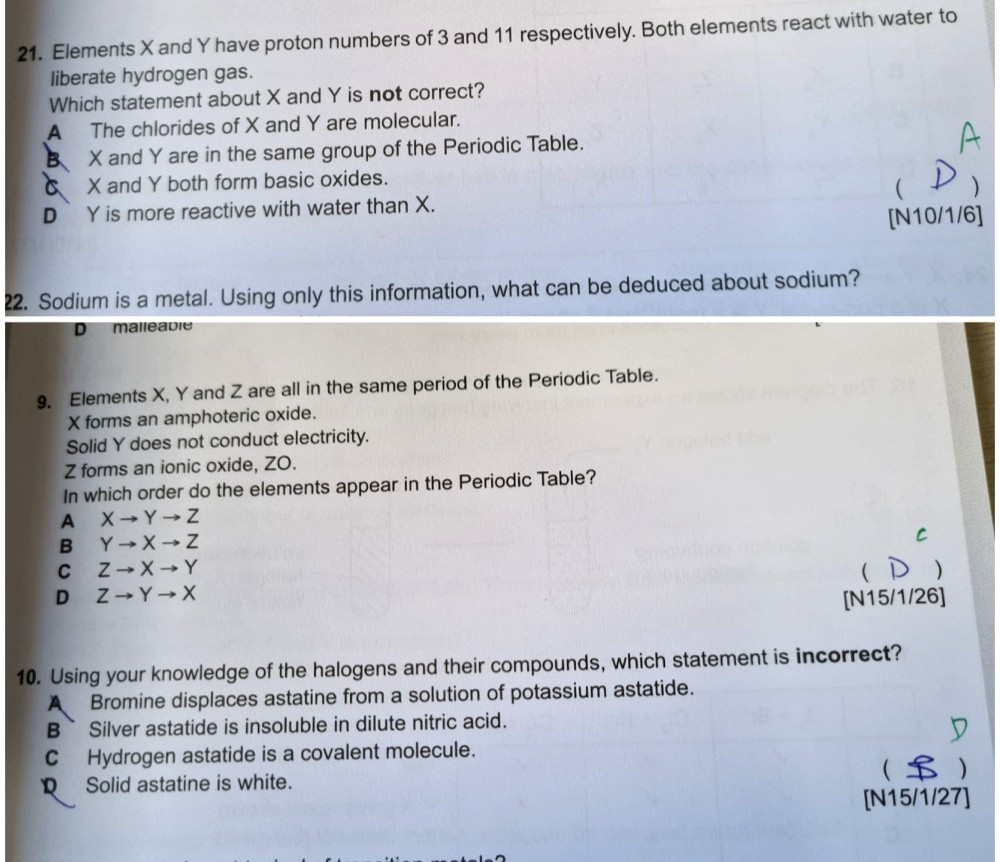Ask Singapore Homework?
Upload a photo of a Singapore homework and someone will email you the solution for free.

See 2 Answers
done
{{ upvoteCount }} Upvotes
clear
{{ downvoteCount * -1 }} Downvotes
Hope it helps. Do clarify if uncertain about anything.
Date Posted:
3 years ago
for qn21, anything that mentions "reactive" it will be increase/decrease down the group according to periodic table no matter what? this qn mentioned water hence i was confused...
for qn10, i still dont really understand B... i also dont understand option A although i cancelled it
Grp 7 halogens can undergo displacement reaction. Reactivity decreases down the group. So the more reactive halogen can displace the less reactive halide. E.g if you add Fl (element,halogen) to lets say HCl (Cl- ion, halide), because Fl is more reactive, Cl will be displaced. So thats why bromine, more reactive halogen can displace astatine from its halide. That is why A is correct. As for B, Nitric acid (even concentrated) is essentially an aqeuous solution. Effectively, silver halides will not dissolve in water. This is just something that needa remember. (silver and lead chlorides,iodides are insoluble, applicable for the whole grp 7). If anything else need to be clarified do ask :))
done
{{ upvoteCount }} Upvotes
clear
{{ downvoteCount * -1 }} Downvotes
21) Reactivity of grp 1 metals always increase no matter what
Date Posted:
3 years ago





